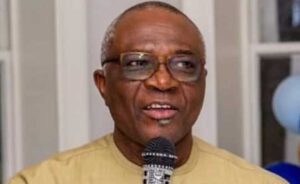
At the opening of the 30th United Nations Climate Conference (COP30) in Belém, Brazil, multilateral development banks (MDBs) reaffirmed their commitment to scaling up climate finance, pledging new and innovative funding mechanisms to strengthen global adaptation and resilience efforts.
Speaking at a side event hosted by the Climate Investment Funds (CIF) on Monday, MDB leaders emphasized that “financing climate resilience is not a cost, but an investment.” The session, titled “Accelerating Large-Scale Climate Change Adaptation,” featured representatives from major institutions including the African Development Bank (AfDB), Inter-American Development Bank (IDB), World Bank, Asian Development Bank (ADB), and European Investment Bank (EIB).
MDBs scale up climate resilience funding
Ilan Goldfajn, President of the Inter-American Development Bank Group, announced that MDBs plan to triple resilience financing to reach $42 billion by 2030, underscoring that “resilience is essential for development today.”
Tanja Faller of the Council of Europe Development Bank noted that climate change “amplifies existing inequalities,” warning that vulnerable communities are often the hardest hit and slowest to recover.
Read Also: COP 30: African stakeholders issue seven-point call
Representatives from the Islamic Development Bank, Asian Infrastructure Investment Bank, European Bank for Reconstruction and Development, and the New Development Bank also shared examples of successful adaptation investments and resource mobilization strategies.
African Development Bank leads regional action
Kevin Kariuki, AfDB Vice President for Power, Energy, Climate, and Green Growth, highlighted the Bank’s leadership through the Climate Action Window—a dedicated financing mechanism under the African Development Fund for low-income countries.
“The African Development Bank is the only multilateral development bank with a portfolio of adaptation projects ready for investment through the Climate Action Window,” Kariuki said, adding that Germany, the United Kingdom, and Switzerland are key partners.
He also cited the Bank’s YouthADAPT programme, which has invested $5.4 million in 41 youth-led green enterprises across 20 African countries, creating over 10,000 jobs, 61% of them led by women.
Global leaders call for urgent action
The session followed COP30’s official opening, where Brazilian President Luiz Inácio Lula da Silva made a passionate call for greater global investment in climate action to avert “a tragedy for humanity.” He urged countries to honor their Paris Agreement commitments and accelerate the transition from fossil fuels and deforestation.
Outgoing COP President Mukhtar Babayev, Azerbaijan’s Minister of Ecology, reminded delegates of the need to fulfill promises made at the Baku Conference, including mobilizing $300 billion in climate finance. He handed over the COP presidency to André Corrêa do Lago, Brazil’s lead diplomat for climate negotiations.
COP30, running from 10–21 November, is expected to focus on accelerating climate adaptation, strengthening international partnerships, and mobilizing financing to meet the goals of the Paris Agreement.





